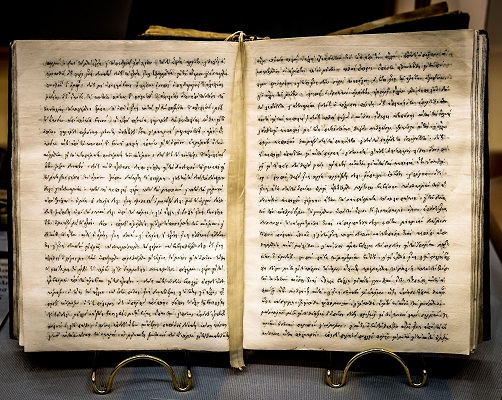As you look at the requirements for a master’s in history degree program, you’re likely to find a foreign language on the list. Many graduate history programs ask that students cultivate proficiency in one or more foreign languages, a demand that, at first, may puzzle prospective students. The main reason students are often required to take a foreign language to earn their master’s in history degree and the specific foreign language they should choose are intertwined.
The Reasons Graduate Students in History Often Need a Foreign Language
In undergraduate degree programs, graduation requirements sometimes include a set number of courses or years of study in a foreign language. If you look at the foreign language requirements that exist in most graduate history programs, you typically won’t find minimum foreign language course requirements. Instead, the foreign language requirement most common in history programs is the development of “reading” knowledge or proficiency in that language.
IMAGE SOURCE: Pixabay, public domain
Reading knowledge generally means that you have enough proficiency in the language to read content – which can range from labels on packages to high-level papers on topics like science, philosophy and art – that is presented in that language. You don’t, however, need to be able to speak the language fluently enough to carry on a conversation in it or pass an oral exam. Most times, students demonstrate their reading knowledge of a language by completing a written foreign-language translation exam.
The reason it is reading knowledge that is required is that historians use their foreign language skills primarily for the purpose of reading primary and secondary historical source documents. After all, historical documents have been created in every imaginable language, including some that are no longer widely spoken today and many that, though still used, have changed considerably over time. If your ability to read and make meaning from historical tests is limited to those composed in English, you may miss out on crucial historical information.
As such, which language you should study for a master’s in history depends on what aspect of history interests you. In some cases, you may need to be able to read more than one foreign language. For example, you may need to know Latin, German and French if you want to study Medieval history. You may need to know Arabic, Turkish and Hebrew to become an expert in the history of the Middle East. If you’re studying American history, British history or the history of another primarily English-speaking country, you may have the option to choose whatever language interests you or the language that is most pertinent to your field of study, such as Spanish or French.
Students are often encouraged to take their foreign language competency test in their first semesters of graduate study so they can use their reading knowledge to interpret sources that are written in that language as part of their studies or thesis research.
Studying History at the Graduate Level Without a Foreign Language Requirement
There are some master’s in history degree programs that don’t formally require foreign language proficiency. However, even programs that don’t strictly require students to have command of a foreign language often encourage students to do so voluntarily.
If you’re determined to avoid studying a foreign language – whether because you’re not naturally gifted at picking up languages or because you firmly believe a second language won’t be relevant to your historical interests – you may have a harder time finding a graduate program that fits your needs. Prospective students can’t count on the American Historical Association’s directory of institutions for history study or on other professional organizations to answer the question of whether an individual school has a foreign language requirement, an article in the Organization of American Historians noted in 2014.
Prospective students who aren’t interested in the foreign language requirement may have to closely examine programs’ individual graduation requirements as they weed out schools that aren’t the right fit for them personally. If you’re committed to studying a certain specialization within history that isn’t widely available, finding a school that offers your area of study and doesn’t require a foreign language may be a challenge.
Even if you don’t necessarily feel that your historical inquiries will benefit from learning another language, there are many reasons to study a foreign language, including improvement of your analytical skills, creativity and problem-solving skills.
Additional Resources

